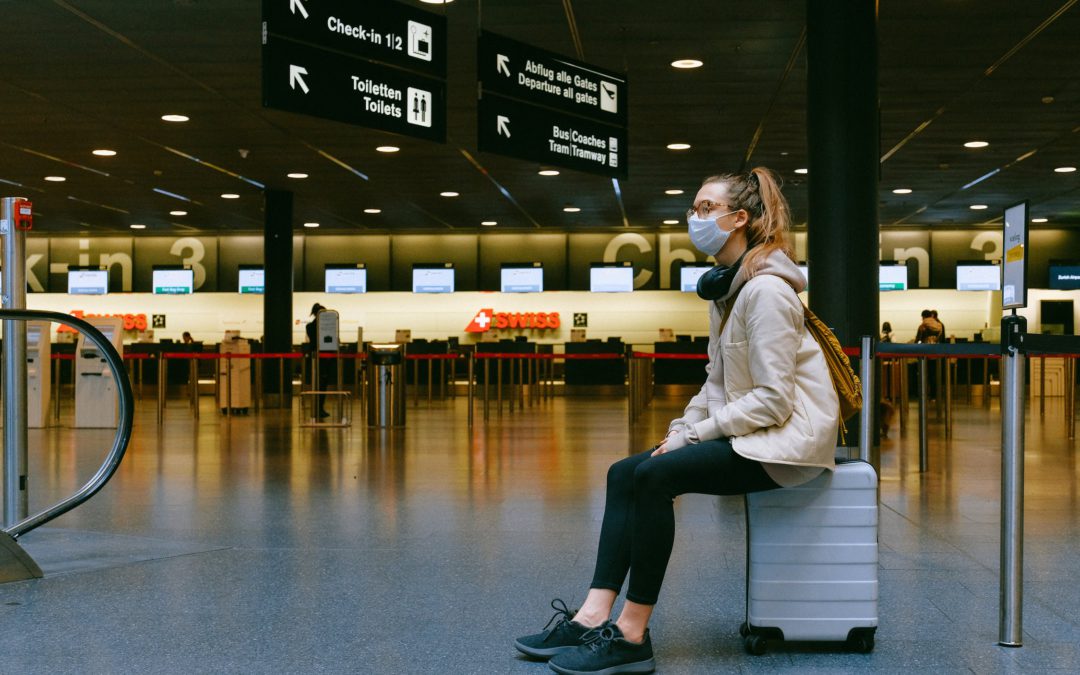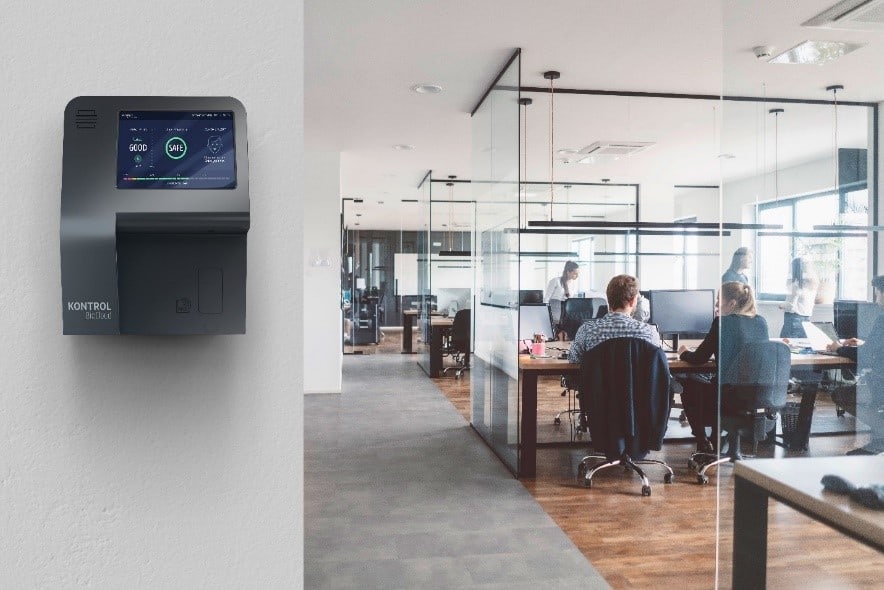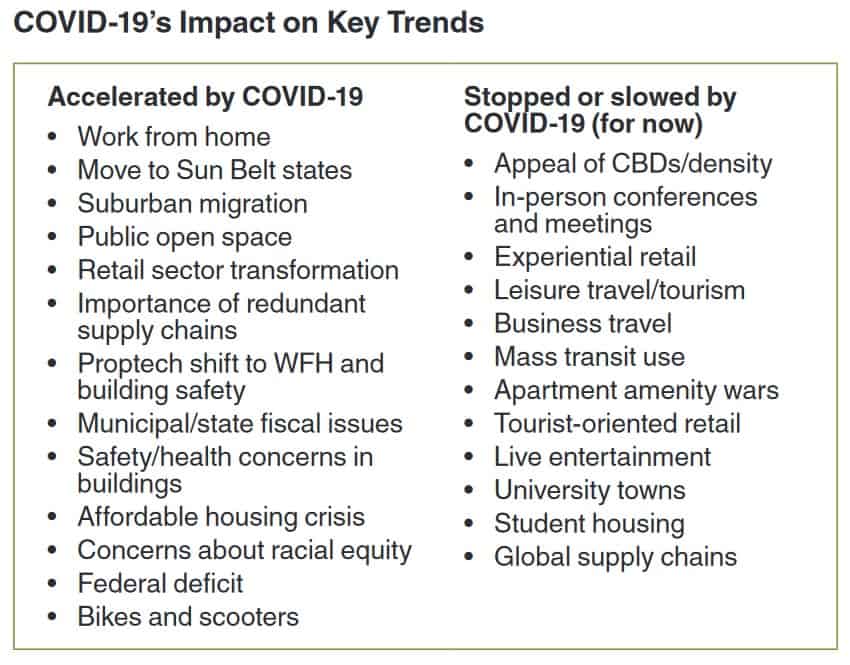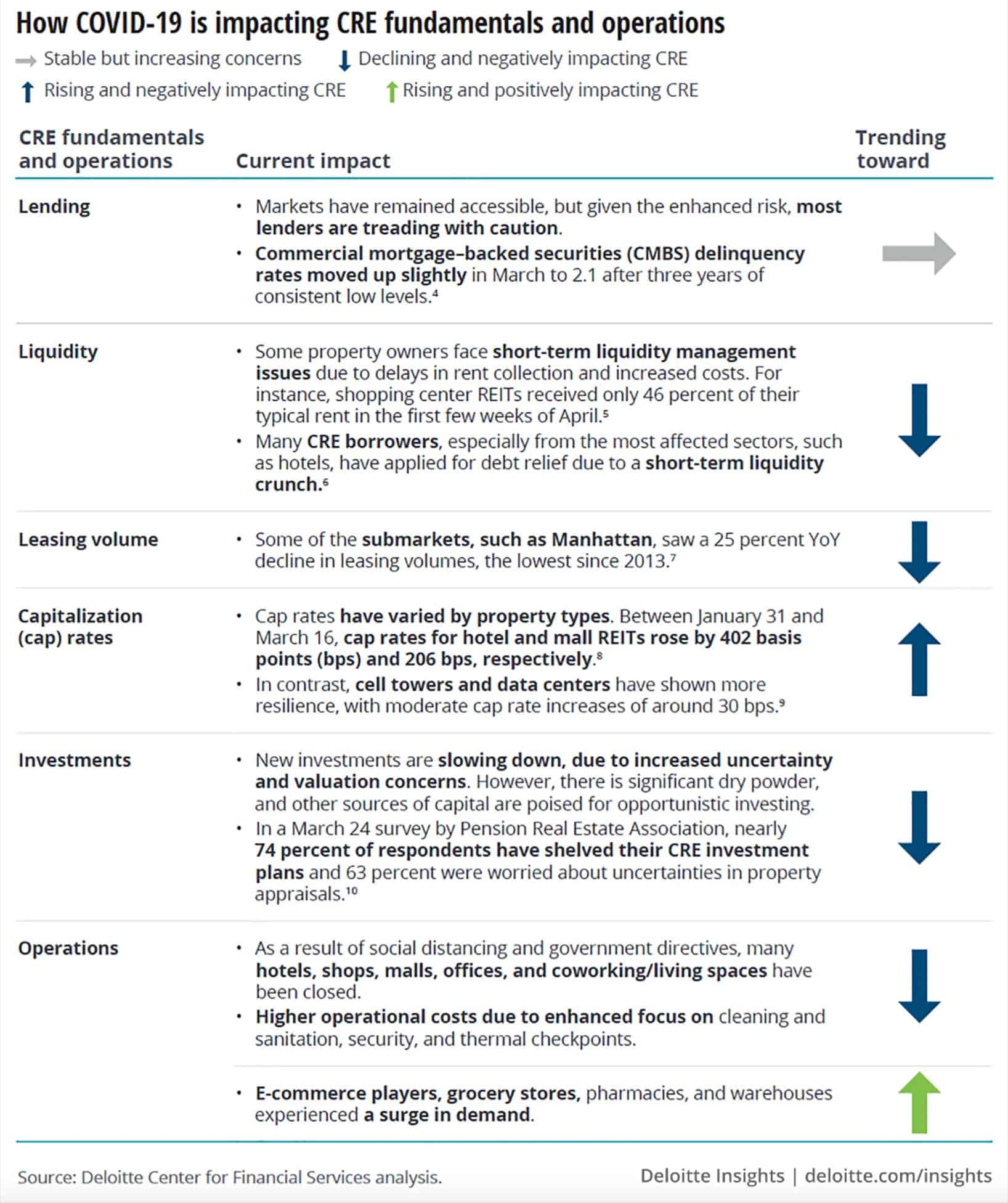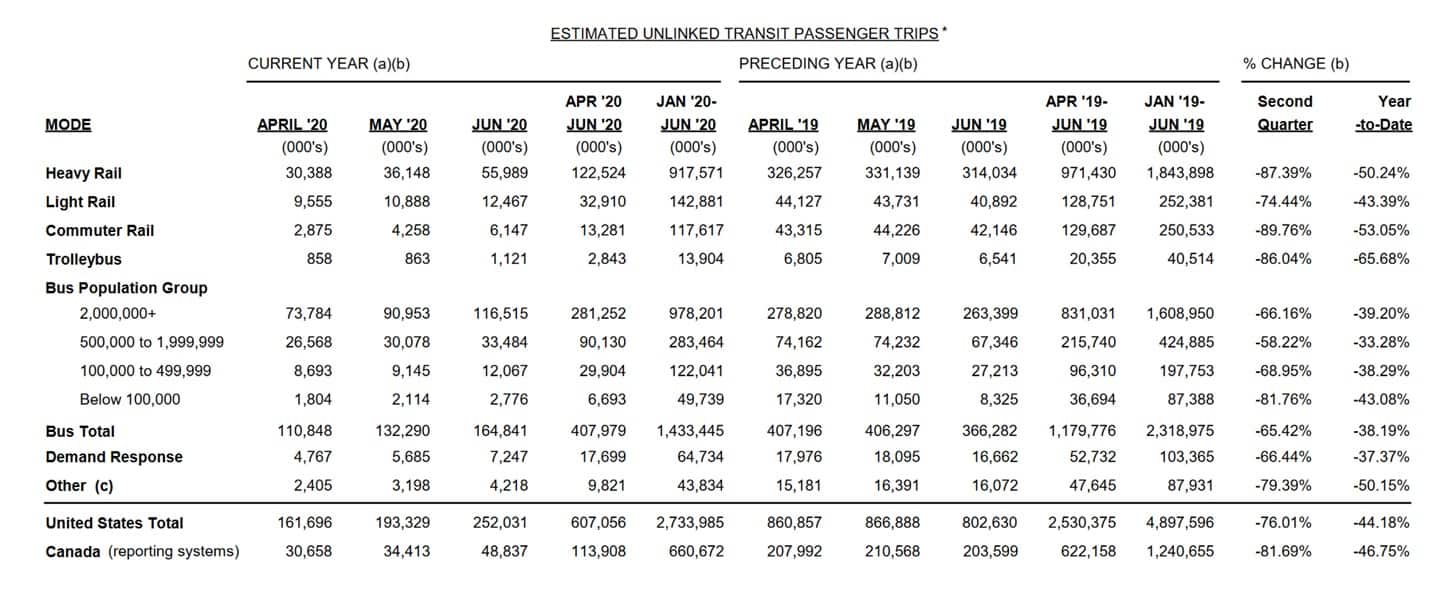Prior Report Recap
In Sophic Capital’s Promising COVID-19 News, But Health Threat Remains report, we discussed:
- Recent advances in the battle against COVID-19 that propelled the markets higher;
- An examination of Pfizer/BioNTech’s phase 3 vaccine trials, and why significant challenges remain, and;
Detection is the Bridge
We believe that until any effective vaccine can prevent COVID-19virus detection and contact tracing is the best intermediary method to protect people and stem the spread. In addition, detection based systems can also be utilized aginast other pathogens, if and when they surface, now that the world has awoken to this threat of pandemics. Kontrol Energy, an emerging leader in the Smart Buildings industry, has developed CSA standards approved technology called BioCloud that detects and alerts for COVID-19 in real-time. BioCloud can also be adapted for other pathogens. Kontrol’s BioCloud can limit the number of people infected through early detection and can thus play a significant role in initiating early contact tracing.
BioCloud Has Potential Applications Across Multiple Industries
In general, people want to be safe and won’t voluntarily congregate in unsafe places. People typically avoid travel to countries with infectious disease pandemics, and governments often restrict travel to and from such areas. The COVID-19 pandemic introduced the idea of “social distancing”, separating people to prevent the virus’ propagation. As long as there remains a threat of severe illness with potential unknown long-term consequences, many people will continue avoiding each other, especially in public places. However, self-isolating to stay healthy has had devastating consequences to mental health (stress, depression, substance abuse, and even suicide) and, of course, the global economy. We’re not medical experts and won’t comment on how COVID-19 has affected health, but we can offer our view on how pandemic has ravaged certain vertical markets.
Source: pwc, Emerging Trends in Real Estate
In Sophic Capital’s Keeping Students, Teachers and Families Safe from COVID-19 report, we detailed how Kontrol Energy’s BioCloud can help get students and teachers back into classrooms safely. Other verticals wrecked by COVID-19 that could benefit from BioCloud’s COVID-19 detection and alerting capabilities include:
Commercial Real Estate
COVID-19’s impact on commercial real estate (“CRE”) was immediate due to quarantining and the reluctance of people to gather in public places. As Deloitte revealed (Exhibit 1), COVID-19 continues to impact CRE fundamentals and operations, with only eCommerce benefitting. And although global CRE investment increased 23% quarter-over-quarter in Q3 2020, it was still down 48% year-over-year. Year-over-year, U.S. CRE investment declined 59%, with multifamily and residential gaining the largest share. Salvaging CRE as this and potentially future pandemics progress requires addressing supply and demand safety issues.
On the demand side of CRE, although the media has hyped the benefits of the transition to work-from-home (“WFH”), the reality is that 60% of workers cannot WFH. Personal finances, manual labour, and the need to host clients and engage projects in person may drive some of those who cannot WFH back into their workplaces. Others may never return or be highly reluctant to return out of fear of contracting COVID-19. A Korn Ferry survey of professionals found that 32% of workers are highly likely to return when their office reopens. Safety is top of mind for employees when returning to their workplaces. Supporting the relevance of back to work, the market traded out of WFH stocks and back into physical world stocks on November 9, 2020, on the back of the Pfizer news.
On the supply side, CRE owners need to attract tenants and retain leases. This requires installing systems and protocols that keep and convince tenants that they are safe on CRE properties. Heating, ventilation, and air conditioning (“HVAC”) systems (which we will discuss next) are good first steps to build the case for safe CRE spaces. But even if HVAC systems trap COVID-19 and prevent its circulation through public spaces, these existing systems still cannot detect COVID-19. This means that it is impossible to measure the effectiveness of these systems to actually slow the spread of COVID-19.
HVAC
The United States Environmental Protection Agency states that air cleaning or filtration is not enough to protect people from exposure to the virus that causes COVID-19. Although many HVAC systems claim to have the potential to remove COVID-19 from public spaces, they cannot detect the virus. This is a subtle but important distinction –HVAC systems only filter air, Kontrol Energy’s BioCloud detects airborne COVID-19. BioCloud is a real-time COVID-19 monitor that will alert customers if the virus is present, allowing isolation, and rapid testing of those present. HVAC systems will only help remove the virus but won’t alert when the virus is present. When an infected person exhales COVID-19 12 to 18 times per minute, detecting, alerting, isolating, and testing others who were in contact with the infected person is imperative to stem the virus’s spread. BioCloud manages the detection and alerting.
Still, HVAC is part of a healthcare toolkit to combat the virus. Some airlines have proceeded with improving aircraft air filtration systems. By no means are we saying that these filtration systems are not beneficial for passenger safety, especially, since few alternate options exist in the absence of an effective and a widely available COVID-19 vaccine. But even the most effective HVAC systems do not preclude a COVID-19 infected person from spreading the disease to others. Kontrol’s BioCloud can detect COVID-19’s presence, resulting in isolation and immediate testing of people who may have been exposed to the virus, rather than contact tracing weeks after an infected person displays symptoms or tests positive, which gives the disease more time to spread.
Exhibit 1: Commercial Real Estate Fundamentals and Operations Have Not Fared Well Under COVID-19
Source: Deloitte
Transportation
COVID-19 has decimated transportation usage in 2020 compared to 2019:
- Air Travel – IATA reported that global revenue passenger miles (the number of paying passengers multiplied by the distance traveled) declined 72.8% year-over-year in September 2020.
- Cruise Lines – According to Cruise Lines International Association (“CLIA”), which represents 95% of global ocean-going cruise capacity, each day without cruise operations in the U.S. results in nearly 1,000 American jobs lost. From mid-March through November 3, 2020, the suspension of cruise operations may have cause in a loss of over $25 billion in economic activity and 164,000 American jobs. Even though the U.S. Centers for Disease Control and Prevention lifted its 8-month cruising ban, CLIA disclosed that its members would maintain the ongoing voluntary suspension of cruise operations in the U.S. through December 31, 2020 to implement COVID-19 safety measures.
- Public Transportation – The pandemic accelerated the ongoing decline of public transportation use in the United States and Canada. Transit passenger trips fell about 45% year-over-year on both countries through the first half of 2020 (Exhibit 2).
Exhibit 2: H1 2020 U.S. and Canada Public Transportation Declined About 45% Year-Over-Year
Hotels
Fewer tourists have led to decreased hotel room occupancy. According to Coldwell Banker Richard Ellis (“CBRE”), the world’s largest commercial real estate services company, every $1 invested in business travel generates $12.50 in incremental revenue to other firms. CBRE notes that revenue per available room in dense urban markets remains over 80% below 2019 levels, due to a lack of corporate demand. Preferences for those venturing on vacations, staycations, and relocations during the pandemic seemed to lean towards Airbnb rentals, as many travellers sought safety and seclusion. Although hotels may not be able to mitigate seclusion, they can improve safety concerns by implementing Kontrol Energy’s real-time, airborne COVID-19 BioCloud detection system to alert guests and staff to when the virus is present.ies with minimal disruption.
A lot of hotels are really taking steps to mitigate risk, having online check in, clearing the rooms, keeping people out of the lobby, but again, it’s indoor with strangers. If you’re walking through a hotel lobby, you want to have a mask on. The ideal situation would be an Airbnb or a rental that had been empty for a couple of days.
Dr. Keith Armitage
Medical Director, University Hospitals Roe Green Center for Travel Medicine & Global Health
To help reverse the decline of hotel rooms, guests need to feel safe, and Kontrol Energy’s BioCloud can help. Think of BioCloud as analogous to a smoke detector that warns of COVID-19 and potentially other future pathogens instead of fire. When walking into a hotel room, the BioCloud would indicate a safe space adding confidence to travellers. If BioCloud detected COVID-19 in a hotel’s public space, it would issue an alert to management who could then implement protocols to inform and test guests. Guests and staff who were not in the public space where BioCloud detected COVID-19, could continue on their activities with minimal disruption.
The key question when going to hotels is not so much the ventilation, but who you’re interacting with there and where you’re interacting with people.
Amesh Adalja
Senior Scholar, Johns Hopkins Center for Health Security
BioCloud Has Potential During and Beyond COVID-19
Other Viruses, Strains and Pandemics
So far, we have discussed BioCloud’s ability to detect the COVID-19 virus. However, Kontrol Energy describes BioCloud as “a real-time analyzer designed to detect airborne viruses”. In the last 20 years, the world has dealt with SARS, MERS, Ebola, avian influenza and swine flu epidemics. In fact, the World Health Organization lists 9 diseases that currently pose a priority threat, including “Disease X” which is the idea that a serious international epidemic could be caused by a currently unknown pathogen. We’ve already seen additional strains of the SARS-CoV-2 virus in Denmark, which recently led the country to consider culling the country’s entire mink population on fears that a COVID-19 mutation moving from mink to humans jeopardising future vaccines.
Several experts have warned that more pandemics beyond COVID-19 will (not “may”) occur. Kontrol Energy designed BioCloud so that it can potentially detect different viruses, depending on the detection mechanism used in the sampling chamber. Should newer disease-causing pathogens emerge in the future, BioCloud’s detection chamber can potentially be interchanged to focus on these pathogens. As the disruption caused by COVID-19 has been broad and deep, we believe safeguarding against such future threats is a reasonable precaution many customers could undertake, as we examine in this report.
We are living in the age of pandemics…I think we are going to see more and more of them, and the fundamental reason is that we failed to live in harmony with nature.
Peter Piot
Head, London School of Hygiene & Tropical Medicine
Discovered Ebola virus
Competitors Validate Kontrol’s Monitoring Based Approach
To date, a few BioCloud competitors have emerged. Like BioCloud, these solutions rely upon COVID-19 detection rather than filtration, and all can be beneficial to reducing the spread of COVID-19. However, competitive detection methods differ from BioCloud. That said, we have based our views on competition based on publicly available information, which for private companies can present a limited picture. We have also not directly spoken with competitors to ascertain their capabilities.
Poppy: San Francisco-based Poppy offers hardware and software to detect over 3,000 viruses, bacteria, molds, and pests through continuously monitoring of public spaces. Unlike BioCloud, Poppy does not indicate it is a real-time analyzer as Poppy’s on site measurements must be sent to a lab for analysis (usually a 48 hour turnaround).
Senseware: Offering real-time, cloud-based monitoring, alerts, and reporting, Senseware takes an industrial air quality approach by seeking airborne anomalies on a parts per million basis. As far as we can assess, Senseware does not rely upon a chemical process to analyze particle anomalies, which may or may not be related to COVID.
Aerosol Devices: Its BioSpot VIVAS™ Bioaerosal Sampler uses a similar approach to Kontrol’s BioCloud to detect COVID-19. However, Aerosol Devices’ appear less automated and may require more manual applications.
DARPA: DARPA is a government agency that makes pivotal investments in breakthrough technologies for national security. The agency launched an initiative for best ideas and systems over the next 18 months and has requested open bid for technologies that can seek and find COVID in the air.
Viral Safety will Be An Ongoing Trend
Unfortunately, many experts believe that COVID-19 won’t be the last global pandemic. This raises the question of whether pathogen detection in offices, schools, hotels, and hospitals is a current COVID-19 fad or an enduring necessity. Here’s what third parties believe:
pwc: Safety in buildings, as it relates to health, is likely to become a must-have and critical differentiator in the wake of COVID-19. Making substantive health safety changes may be the first challenge, requiring both upfront capital costs and ongoing operating costs. Convincing companies, workers, customers, and guests that office buildings, retail stores, restaurants, and other public-use facilities are safe is another challenge—a tall order, but one that the real estate industry must solve.
McKinsey & Company: …businesses must implement safety measures across the full range of activities associated with their operations, including activities that take place outside the work environment. Businesses must also define protocols and policies for pre-entry, travel to and from work locations, use of common spaces, and post-infection.
Deloitte: A safe environment to return to includes cleanliness—both in terms of what workers can see and what goes on behind the scenes—and ventilation systems. This is consistent with other Deloitte research that explored which safety measures are table stakes for returning to work.
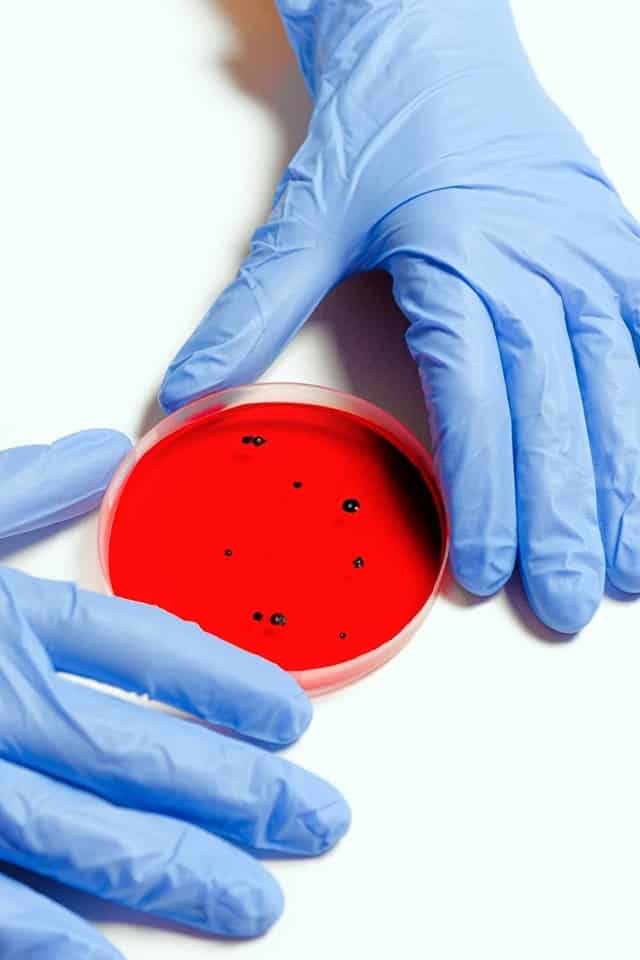
Korn Ferry: Fewer than a third (32 percent) say it is highly likely that they will return to their office when it re-opens. Half (50 percent) say they are fearful of going back due to health concerns, even though 75 percent say they believe their employer will create a safe and healthy work environment for them.
Based upon third party research, we believe viral safety in public spaces will be an ongoing trend beyond COVID-19. Workers demand it. So do business customers. We believe it is imperative that public spaces implement systems and protocols that protect people from viruses.
Other Reasons to Own Kontrol Energy Stock
There are several reasons beyond BioCloud to own Kontrol Energy (CSE:KNR, OTC:KNRLF) shares:
- Solid base business that reduces building energy and emissions waste;
- C$14.6 million revenues (C$3.7 million recurring), 48.8% gross margins in 2019;
- Blue-chip customer base that includes Toyota Tsusho, Beyond Meats, Suncor, and Brookfield;
- Solid record of acquiring accretive Smart Building solutions providers and no goodwill written off;
- Tight share structure with 34.5 million shares issued and outstanding; Insiders own 40% of shares issued and outstanding, which includes KNR CEO Paul Ghezzi who himself owns over over 16%.
A low share count and tight float amplifies the stock’s moves, as a result focusing on the Company’s total valuation is a more appropriate way to put the Company’s value into perspective. For example, at Kontrol’s November 10, 2020 closing stock price of C$3.10/share, the Company had a market capitalization of around C$107 million. Including net debt (ex. lease liabilities and Vendor Take Backs), the Company had an enterprise value of around C$117 million. If investors believe BioCloud presents a compelling value creator for the company, every $100 million of value ascribed to this opportunity equates to a stock price movement of roughly $2.90/share, or around 90% of the Company’s current stock price.

